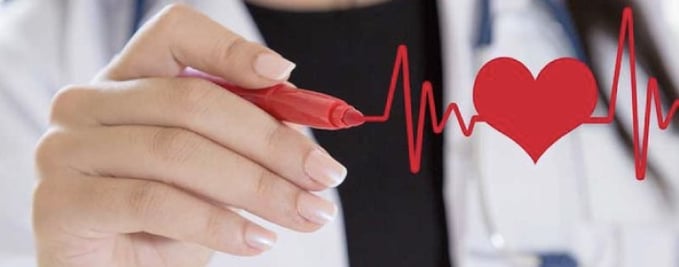Who is at Risk for Cardiac Arrest?

Cardiac arrest can strike anyone regardless of their age, gender, level of physical activity or other factors. However, some people are more likely to endure a cardiac arrest than others. Sudden cardiac arrest is best defined as the rapid and unexpected loss of heart functionality. Consciousness and breathing are also lost during cardiac arrest. This occurs when there is an electrical disturbance within the heart that stops the pumping of blood to the rest of the body. Sudden cardiac arrest differs from a heart attack in that the blood flow to an area of the heart is blocked. Yet it is also possible for a heart attack to cause an electrical disturbance that induces cardiac arrest.
Causes of Cardiac Arrest
The top cause of cardiac arrest is an abnormal heart rhythm, commonly referred to as arrhythmia. This occurs when there is an issue with the electrical system of the heart. The heart has an electrical stimulator of sorts in the form of cells within the sinus node in the upper right chamber. The sinus node forms electrical impulses that send blood through the heart, sync up the heart rate and coordinate blood flow from the heart to the remainder of the body.
If there is an issue with the sinus node or the movement of electric impulses within the heart, arrhythmia can occur. The heart will then beat too fast, too slow or in an irregular fashion. However, a majority of these kinds of alterations in rhythm are temporary and consequently harmless. In other cases, arrhythmia can cause a rapid stop of heart functionality. Those who have a healthy heart are not likely to have arrhythmia that causes cardiac arrest. The use of illegal drugs and/or heart conditions make the onset of sudden cardiac arrest that much more likely.

Pre-existing Heart Conditions are Cause for Concern
Those who have a pre-existing heart condition are much more likely to suffer an arrhythmia that proves life-threatening. As an example, coronary artery disease often leads to cardiac arrest. This disease involves a clogging of the arteries with deposits like cholesterol that restrict the flow of blood to the heart. An individual with an enlarged heart has stretched-out muscular walls within the heart that become overly large or too wide. The heart muscle is subsequently abnormal and heart tissue is damaged.
Some heart attacks cause ventricular fibrillation and induce rapid cardiac arrest. A heart attack can also leave behind scar tissue that leads to heart rhythm abnormalities. Issues with the heart's electrical system like long QT syndrome or Brugada's syndrome also increase the chances of cardiac arrest. Those who have congenital heart disease at birth and those who have valvular heart disease are also at a higher risk for cardiac arrest. Valvular heart disease refers to the narrowing or leaking of heart valves that causes a thickening or stretching of the heart.
Common Risk Factors for Cardiac Arrest
Those who face a high risk for coronary artery disease also have a higher risk for cardiac arrest. An individual with a family history of heart problems including but not limited to coronary artery disease has a disproportionately high risk for cardiac arrest. Obesity, smoking, diabetes, sedentary living, excessive alcohol consumption and high blood pressure and/or blood cholesterol are also linked to cardiac arrest. Furthermore, the chances of cardiac arrest are elevated during the aging process. Men are twice as likely to endure cardiac arrest than women. Finally, those who have a nutritional imbalance such as a particularly low level of magnesium are at risk for a heart-related health incident like cardiac arrest.
Take Your Heart Health Seriously
If you have a fast heart rate that comes and goes, it is cause for concern. Dizziness, fainting, chest pain, blackouts, weakness, shortness of breath and vomiting are also common signs of pending cardiac arrest. Any indication of these signs should prompt an immediate call to emergency medical service providers. If you have a family history of heart problems or any of the other risk factors noted above, meet with your doctor on a regular basis for heart health checks. Have your doctor evaluate your heart health as soon as possible. He will likely recommend the use of a heart rate monitor to ensure your heart rate stays within target zones during periods of physical activity.
Related Content:
Empower your staff and reassure your community with our FREE downloadable cleaning and disinfecting guides for fitness centers, educational settings, hospitality facilities and more.
Topics from this blog: industry news
Back




